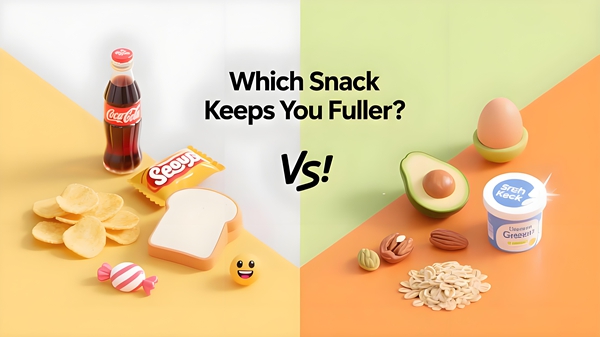Snack Smarter: What Fills You Up Better?🥪🧠

Some foods, even if they have the same calories as snacks, can keep you fuller longer and prevent you from feeling hungry. It can be difficult to tell which foods provide lasting energy.
Advertisement
Not All Snacks Are Created Equal 🍪🥜
Ever eaten something "light"-only to feel hungry again 30 minutes later? That's the difference between empty calories and foods that actually keep you full. This challenge looks at how different snacks affect satiety (how full you feel) and why nutrition matters more than just numbers.
It's Not Just About Calories 🔢🍌
Two snacks might have the same calorie count, but your body reacts to them very differently. A banana and a candy bar might both give you energy, but one provides fiber, natural sugar, and nutrients, while the other spikes your blood sugar, then crashes it. Choosing the right snack means balancing protein, fiber, and healthy fats-key nutrients that slow digestion and help you stay satisfied longer.
The Science of Feeling Full 🧠🥣
Foods high in refined carbs (like crackers or sugary cereal) digest quickly and often leave you hungry again. But snacks like Greek yogurt, nuts, or whole grains give your body more to work with-slower energy release, less cravings, and better appetite control. That's why understanding fullness is useful for weight control and overall healthy eating.
Small Swaps, Big Results 🥪✨
You don't need to cut snacks out of your life. In fact, well-planned snacks can help stabilize blood sugar, keep your energy steady, and reduce overeating later. The key is to look for options with staying power-a boiled egg and fruit, for example, might be more satisfying than a granola bar that's mostly sugar.
Why It Matters ⚖️🍿
Being more mindful about what fills you up can help you feel better throughout the day. Whether you're dealing with afternoon slumps or late-night cravings, choosing smarter snacks can support your nutrition goals, reduce mindless eating, and help you build better food habits over time.